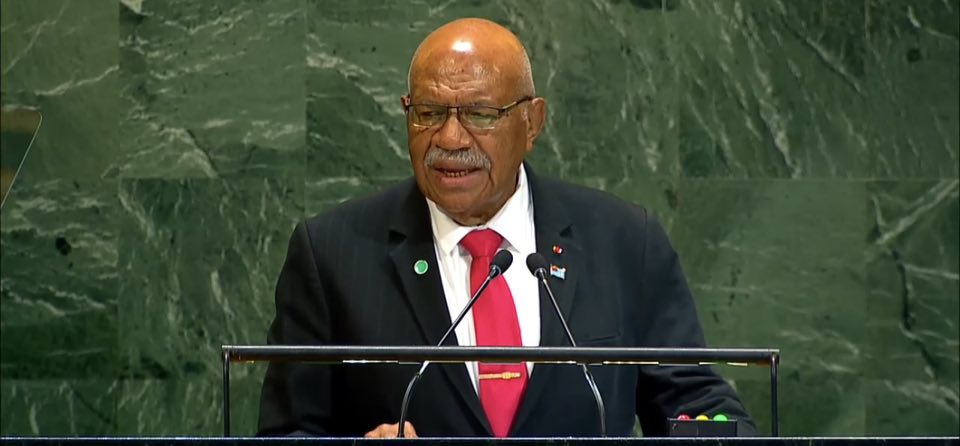Fiji is prepared to host Pacific Islanders who may be forced to leave their homelands due to rising sea levels, Prime Minister Sitiveni Rabuka told world leaders at the 80th United Nations General Assembly in New York.
Delivering Fiji’s national statement, Mr Rabuka said the region’s smallest and lowest-lying island states were “struggling to stay above sea level” as the global community falters on climate action.
“Under our ‘family first Pacific regionalism’ foreign policy priority, Fiji stands with its fellow Pacific Island neighbours,” he said.
“Some of our smaller Pacific Island communities are struggling to stay above sea level. The international community is faltering in its commitments to keep below 1.5 degrees Celsius. Low-lying Pacific states expect the worst.”
He revealed Fiji is now exploring options to accommodate climate-displaced populations from neighbouring countries.
“Today, my government is looking at ways to host these island communities if it is not possible to remain on their islands,” Mr Rabuka said.
He called for global recognition of the human dignity of climate refugees, noting that they currently lack formal status under international law.
“That starts with a legal definition. To date, they are merely referred to as ‘displaced people’,” he said.
Mr Rabuka highlighted a unique regional challenge that most land in the Pacific is communally owned and warned of the emotional and legal complexity involved in resettling those who lose their homelands.
“In the Pacific, where over 90 per cent of land is communally owned, those that are being displaced will be landless before they become stateless, stripping them further of their dignity,” he said.
He described Fiji’s initiative as an unprecedented and high-stakes undertaking.
“This is complex, sensitive and costly work. We’re setting the precedent. We have no margin for error as we’re dealing with real lives, whose impacts may compound existing stresses,” Mr Rabuka told the Assembly.



